Menu
Menu
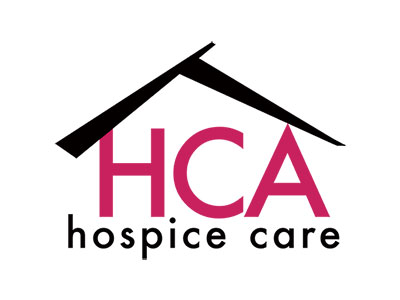
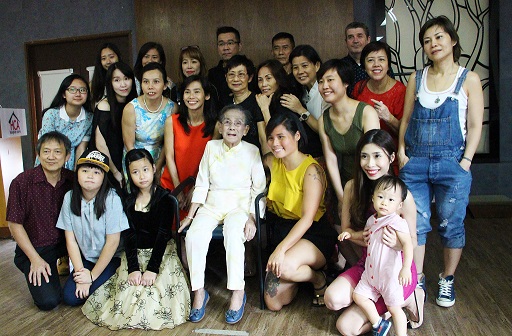
Old-school games, well-loved childhood snacks and art and craft booths – these were just some of the highlights at the recent Family Foto Fair 2018 – the National Day edition.
The third run of its kind, the objective of the event remains the same – to enable patients and their families to garner happy memories and capture family portraits. The Family Foto Fair 2018, which took place on 4 August, was organised by Project Caring Hearts (PCH), a community service programme initiated by students from the NUS Alice Lee Centre for Nursing Studies. The programme aims to befriend and provide care to patients who are terminally ill.
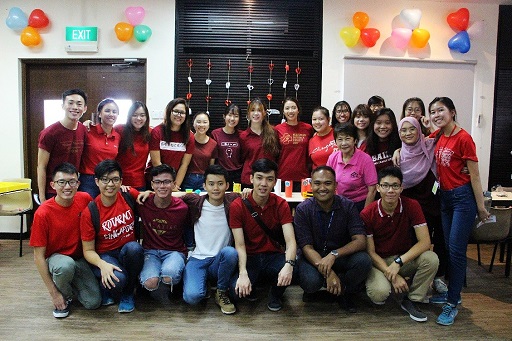
The students from Project Caring Hearts, who did a great job of putting together the logistics for Family Foto Fair 2018.
The air of enthusiasm was palpable as the students busied themselves with preparations for the event, setting up the venue and creating props for the photo-taking booth.
In the midst of the festivities, we catch up with Ian Thiruchelvam Elangkovan, 23, a third-year nursing student with PCH, for a closer look at the nuts and bolts of Family Foto Fair 2018.
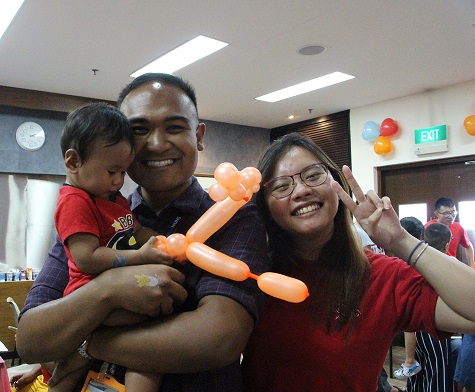
Ian shows a natural flair for kids.
What was the experience of organising Family Foto Fair 2018 like for you and your friends? What did you enjoy most about it?
I felt that it was one of the more fruitful experiences we’ve had in our time as students. We got to experience a very different aspect of care (palliative care), which was an entirely different perspective from what we experience in the acute setting.
We got to appreciate the concept of psychosocial well-being even more, as it was the most important consideration that drove the objective of the event. The most enjoyable part was the ability to interact with the patients and families and truly help add life to their days and smiles on their faces!
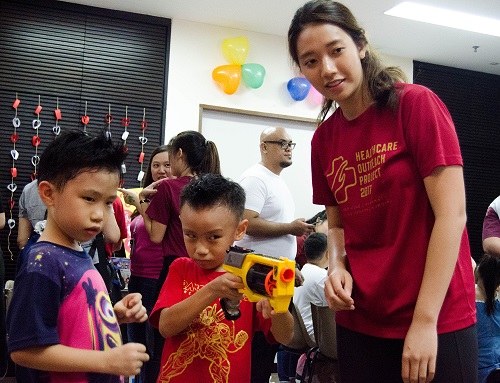
There were plenty of games and fun to be had at Family Foto Fair 2018.
What were some of the challenges you all faced?
I think at the start of the event we had a little bit of an issue with communication as we all approached the project with our own varied perceptions of what death is and how patients receiving palliative care would like to be engaged.
But as we started interacting with them and following through the event, we realised that the patients and their families appreciate what any other person would appreciate – which was pure, genuine human interaction. It was truly a humbling lesson!
How long did the preparations take?
The preparations took around six months. From the conceptualisation of the games – ensuring that they were appropriate for our audience – to the event theme and decorations. It was a constant period of discussions and innovation to ensure that the actual event was meaningful for the participants.
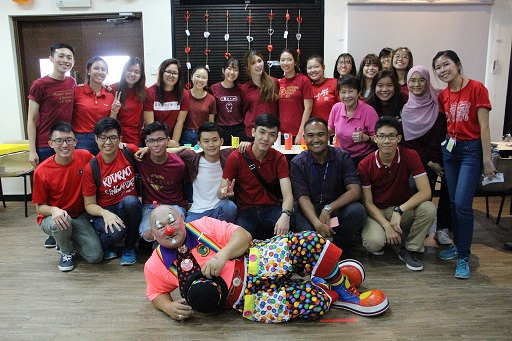
The nurses of tomorrow.
Why did you choose to study nursing?
I chose nursing as I always knew I wanted to be in the healthcare field and being caring was always in my nature. It was a leap of faith when I actually accepted the offer to join NUS Nursing, but it has turned out to be one of the greatest decisions and privileges of my life to become a nurse!
What do you aspire to achieve as a nurse?
I aspire to be a nurse who always treats my patients holistically; one who always holds what is important to my patients in high regard. I also aspire to be an innovator, as I feel that that aspect is important in the nursing sector, as it is a growing profession.